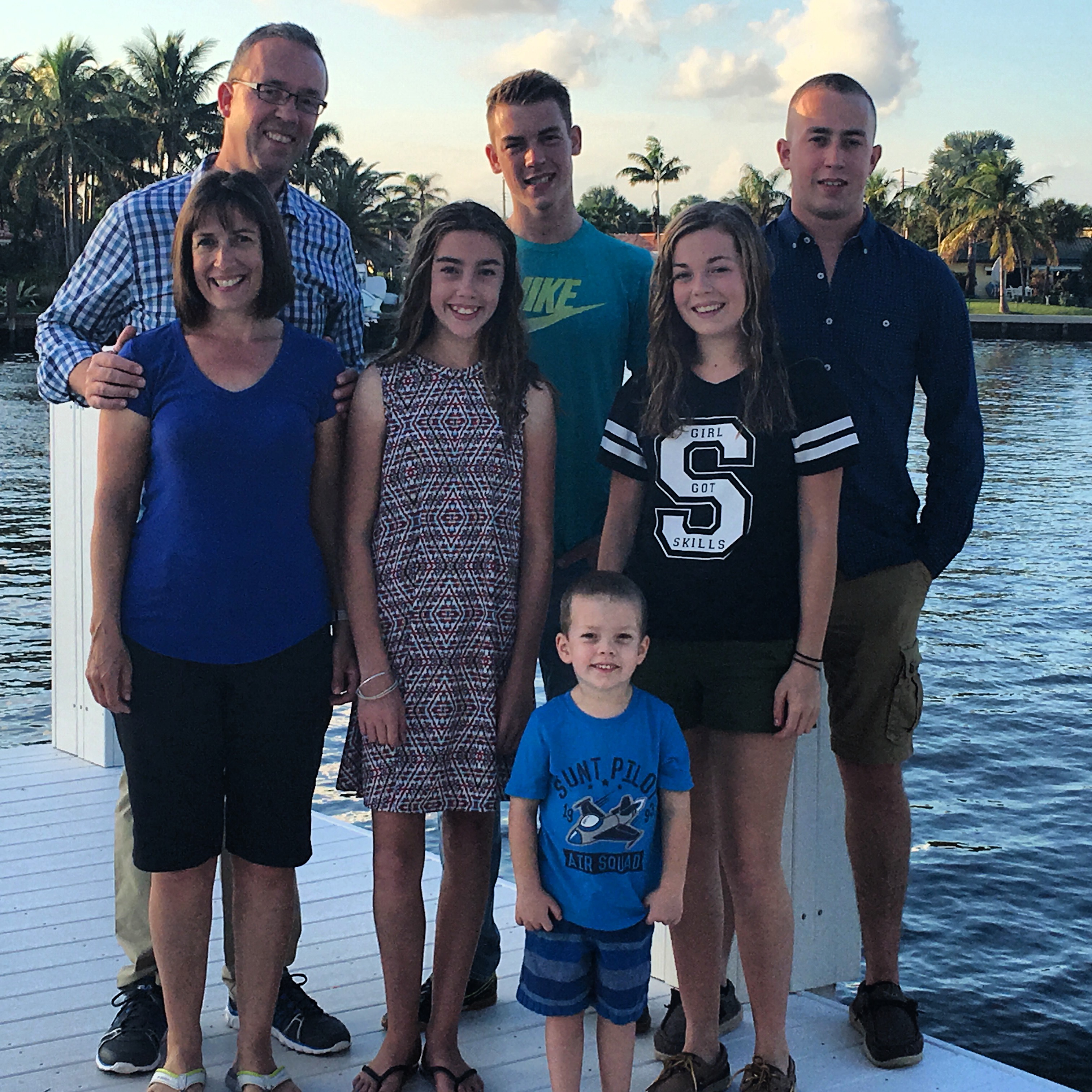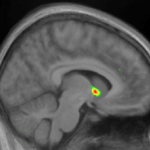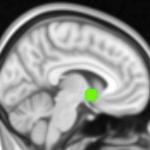Most biographies start with a person’s past. Presidential biographies not only go back to the president’s first job, or where he went to school, or even where he was born. No, the author usually starts with the president’s parents, or grandparents. In fact, usually he goes as far back as records allow.
Why? Why so much interest in people and places that existed and lived hundreds of years before the president?
Partly it’s because we want to trace the important influences on the president’s ancestors. We recognize that a president’s genes, characteristics, interests, personality, etc., were all shaped by his family history and even geography.
But it’s also because we want to see a plan. We want to be able to look back many years and sense the guiding hand of Providence in a person’s story, even before they were part of the story. Biographers look for decisions, events, and characters, both big and small, that demonstrate the Divine Hand preparing the way for this remarkable person’s arrival on earth. He’s looking for evidence of a plan, a pattern, or a sense of destiny that can be traced way back, through centuries, perhaps.
Presidential candidates often attempt this in their own autobiographies. For example: Dreams of my Father by Barak Obama, Faith of my Fathers by John McCain, etc. They want us to connect them with the past, because they all want us to see that they were “predestined” to this, that this was part of a higher plan they had little or no say in. They’re saying, “I’m not just an accident or a coincidence! I have a story, a long and important story, that Someone else is writing for me.”
The Gospels
That’s why the first chapter of the first Gospel, starts with a summary genealogy of Jesus’ ancestors. Although most people just skip over the first seventeen verses of Matthew and go straight to the baby scene, Matthew is saying: “Hey, this is important. Here’s a thumbnail sketch of this baby’s past. Now, go back, read the details, and see how this birth day is not just a combination of good luck and probability. Under God’s direction, many people, places, and events have prepared the way for this day. And if you really want to figure out who this baby is, what his purpose is, and what you should do with him, you have to go back and read about all that led up to this event.”
But not many do. Some might dip into the Psalms and Proverbs here and there, and perhaps read a couple of inspiring chapters in Isaiah from time to time, etc. But it’s like picking up the odd piece of a jigsaw puzzle, admiring it for a few minutes, then throwing it back in the box again. There’s rarely much attempt to put it all together, see the bigger picture, and identify the way that the Old Testament connects with the New, prepares for the New, sheds light on the New, and even makes sense of the New.
As this disjointed and fragmentary approach to the Bible leads to a disjointed and fragmentary spirituality, let me give you four reasons to study the Big Picture of both Testaments.
Understanding Jesus Better
First, the Big Picture helps us understand Jesus better. Whenever a President is asked what books have influenced them, his answer immediately propels that book to the top of the bestsellers list. People want to understand what went into the making of such a successful person, and also to see if the book will have a similar powerful effect on their lives.
The biggest influence on Jesus’ beliefs, language, decisions, spirituality, morality, and actions was the Old Testament. Brought up in a devout Jewish home by a godly mother and father, He was immersed in the Hebrew Scriptures. He heard them, read them, memorized them, sang them, obeyed them, quoted them, consciously and deliberately fulfilled them, and regularly taught them to others. No other book had anything like this influence upon Him. It’s so hard, if not impossible, to understand much of what Jesus said and did without reading the book that shaped Him more than anything else in the world. It’s like putting a few central pieces of the jigsaw together but not even trying to complete the rest. If you complete the rest, you will see Jesus in a whole new light, you’ll see how each piece of the jigsaw connects so beautifully and necessarily with all the other pieces, even some of the oldest pieces.
Revealing More of Jesus
Second, the Big Picture reveals more of Jesus to us. What if I told you that I’d found 39 “Bonus” Gospels, 39 books that not only describe how the world and church were prepared for Christ, but are actually full of Christ? Yes, in the Old Testament, the Son of God was present and active long before his incarnation, revealing Himself to needy sinners via prophecies, pictures, precepts, and especially by His personal presence.
This is where Christ’s biography differs radically from every other biography. When we read about His past in the Old Testament we are not just reading about His background or His ancestors; we are reading about Him. When He was encouraging the Pharisees to read the Old Testament, the reason He gave was, “They testify of me” (John 5:29). These books were speaking about Him, telling people about Him, drawing people to put faith in Him, even before He was born! “Moses wrote of me” said Jesus (Jn. 5:46). That’s almost 1500 years before Bethlehem! Traveling even further back to 2000 BC, Abraham “saw” Christ’s day way down the road of faith and rejoiced (John 8:56).
But Christ was not just seen by forward-looking faith. He was actually there in the Old Testament and seen with human eyes. He frequently came to earth to minister to His people as the Angel (or Messenger) of the Lord, a divine person who often appeared in human form to bring messages of grace and merciful help to needy sinners. 39 Bonus Gospels!
Trusting in God’s Sovereignty
Third, the Big Picture builds confidence in God’s Sovereignty. The more you see the big all-encompassing and unchanging redemptive plan of God, the more you will trust in God’s sovereignty. When you see that no event was accidental, that every event was planned and part of the preparation for the Christ, that God has only a Plan A and it’s being perfectly accomplished, we can begin to trust Him better with our past, our present, and our future. If all I see are disconnected fragments, faith fails, especially in trial. But if I see that God has every piece in His hand and he knows exactly where to put it and when, and that it’s forming a beautiful big picture of Christ, that buttresses faith in a God who is in total and utter control of the world and of my world.
Making Sense of Our Stories
Fourth, the Big Picture helps us make sense of our stories. In Christ-centered Biblical Counseling, counselor John Henderson corrects Reggie who tried to help Maggie’s suffering by quoting scattered Bible verses from here and there. He argues that we must always counsel within the grand narrative of Scripture, that these individual verses will never make sense to Maggie unless she gets The Story behind the verses. He compares Reggie’s approach to his own with this illustration:
I’m guessing you’re trying to get her downriver to a good place. I just can’t figure out how you’ll help her along by standing at the banks, drawing out buckets of water, and throwing them on her feet. They’re good buckets of water and all, but they have no current by themselves. Just like the rest of us, Maggie needs to be swept into the river.”[1]
As Henderson says, everybody has a story that they use to explain the world and their world. But “God’s revelation is The Story meant to help us see clearly and interpret everything else…God’s story interprets, confronts, reshapes, and even redeems or condemns all our stories.”
When we are swept into God’s Story, God becomes the center of the story; and when God is the center of the story, it’s much easier to see how every part of my story is connected to His, how everything harmonizes, as Henderson again illustrates:
The Word acts like a mass symphony of instruments working in harmony and building to something grand, more than a phone book of musical soloists up for hire. All the stories and poems and letters and oracles and wisdom verses of God’s Word, like individual instruments in a great orchestra, serve the whole story. You served Mrs. Maggie a beautiful but single note from a single instrument in the orchestra. No doubt there are solos and duos all around, and each of these comfort and convict us in their way and time, but they aren’t strumming and blowing on their own. In His time, I think the Lord wants us to hear and appreciate the way they harmonize.”
If you see the Big Picture, you’ll increasingly hear the beautiful harmony of God’s Story, and you’ll sense your life’s many fragments coming together with grand purpose, new unity, and comforting cohesiveness.
[1] All quotes taken from John Henderson, “The Grand Narrative of the Bible.” Christ-Centered Biblical Counseling, (Eugene, OR: Harvest House Publishers, 2013), 80-81.









